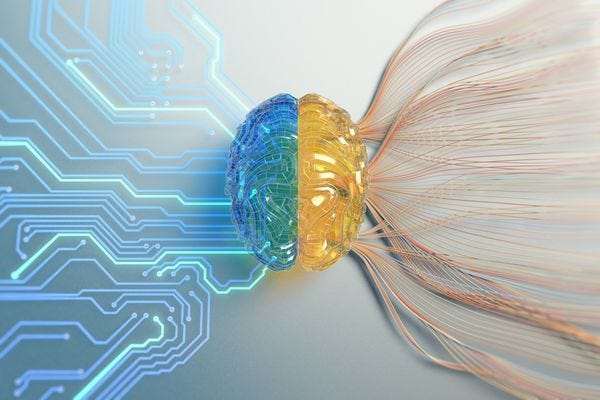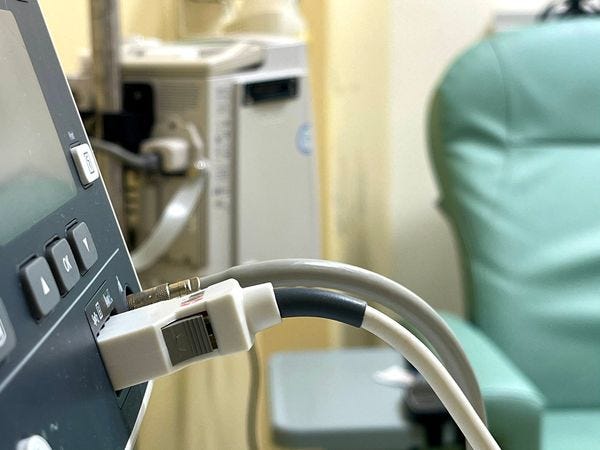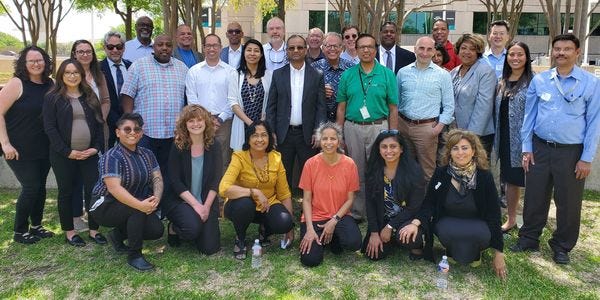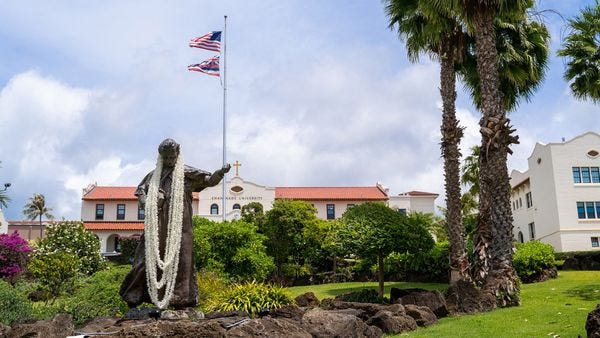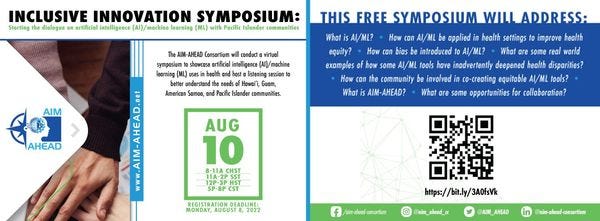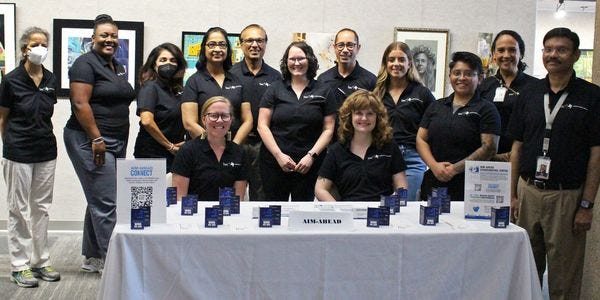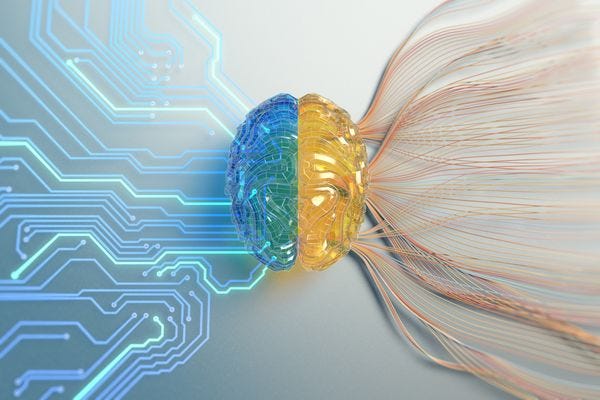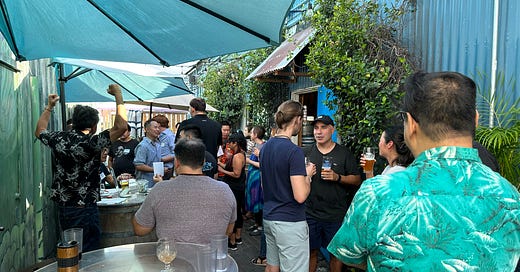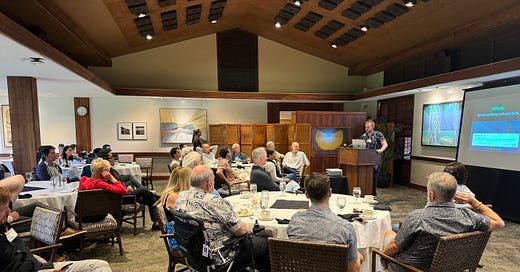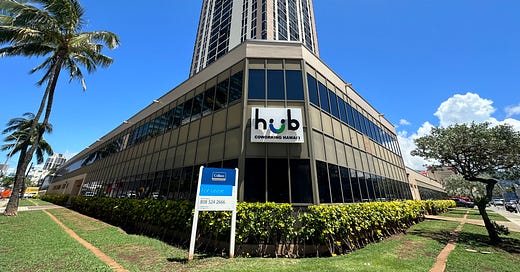
Artificial intelligence and machine learning are transforming medical care
Hey! Let's chat. Join Hawaii Slack. And invite your friends, too!
There's a phrase in computer science, "Garbage in, garbage out." Extrapolated to something more abstract and less negative: The best you can expect out of something depends on the quality of what you put into it. (Jennifer Lopez probably said it best.)
As technology becomes infinitely more complex, some basic concepts remain true. And in medicine, healthcare researchers and practitioners alike know that the usefulness and accuracy of information they provided by system depends on what information was fed into it.
Today there's a national movement to make sure that underrepresented, marginalized, and non-traditional communities are included in the vast oceans of data used in hospitals and clinics. It's the only way to ensure that everyone can benefit from earlier and more definitive diagnoses, more holistic recommendations, more accurate prognoses, and ultimately better health outcomes.
And fortunately, Hawaii — which checks a lot of those boxes — is being included in the conversation. A conversation that includes a public symposium on Aug. 10.
AI, AI, AI
Artificial intelligence and machine learning will change everything.
These sprawling, fast-evolving fields are difficult to define in a simple way, and span dozens of different technologies and even philosophies. I would propose that the overall goal is to develop intelligent agents that can process a ton of mixed data to come to conclusions, make decisions, and produce output that they weren't explicitly programmed to do.
As a journalist, I'm keenly aware of efforts to apply these technologies to replicate journalism, generating articles without having to deal with pesky reporters. And these bots are already writing for some big news agencies, from processing and explaining dense corporate earnings reports to turning a table of sports statistics into narrative articles.
Artificial intelligence is everywhere, in every industry. I would bet half the pitches in Silicon Valley today are basically, "It's X, but with AI." And the emergence of AI image generation platforms like DALL-E — have captured the imagination (both dreams and nightmares) of the mainstream.
I was surprised to learn that of the industries that has progressed the furthest down the AI path is healthcare. I had heard how AI has helped improve breast cancer screening, but the applications go far beyond image analysis.
Artificial intelligence and machine learning in medicine has advanced the idea of personalized medicine, achieved both through better individualized recommendations, and by reclaiming time from analysis and diagnosis so that practitioners can spend more time caring for patients.
But — and it's a big but — these advanced systems can only create solutions based on the information that's fed into it. So a "personalized" solution is very likely to work for "the average person," but not as likely to work for someone on the fringes.
"Because AI is built by humans using data generated by humans, it is prone to reproducing the same biases and inequalities that already exist in our healthcare system," VentureBeat noted last month. "The data [is] often skewed toward patients who use the healthcare system the most: white, educated, wealthy, cisgender U.S. citizens."
This means AI-infused healthcare may not have enough data to provide answers to underrepresented populations — or might even make incorrect recommendations.
Fortunately, this is a well-known disparity in medical research that pre-dates the advent of artificial intelligence and machine learning. And there are entire coalitions and companies dedicated to bringing equity to the health care of tomorrow.
AIM-AHEAD
Last month, a friend who works as a genetics specialist in the Hawaii Department of Health forwarded to me a call for local partners in a nationwide effort to leverage AI in promoting health equity.
The coalition was called AIM-AHEAD, a typically ambitious academic acronym that stands for the Artificial Intelligence/Machine Learning Consortium to Advance Health Equity and Researcher Diversity.
"The broad AI/ML community doesn't want to replace the human connection that happens in healthcare, nor the critical thinking," explains Allison Christian, Senior Project Coordinator at the AIM-AHEAD Coordinating Center. "It's mostly just supporting clinicians, maybe realizing trends, or detecting cancer."
"How I think of it in healthcare is 'augmented intelligence,'" she added.
Christian is quick to acknowledge, however, that there is a lot of fear and mistrust of new technologies, and when it comes to underrepresented or marginalized communities, that hesitancy is reasonable.
"With some of the historical things we've seen in research, it can be really scary, that's definitely something that we want to make sure we're acknowledging to start," she says. "On the other hand, this evolution is happening, so we want to bring more people on board so that we can make these tools more equitable."
There also needs to be understanding and trust on the part of the healthcare provider.
"AI/ML tools have historically been a black box, not very transparent with how they're built or what data is going into them and how they make their decisions," Christian notes. "We want to make sure that clinicians can say confidently how these tools are affecting their clinical decision making and how they work so that they can communicate that to their patients."
The key, she says, is clear, honest communications, and preserving patient autonomy.
"Patients should always feel comfortable talking to their clinicians in the healthcare setting about the use of these or any tools," she says.
AIM-AHEAD — taking its cues from the federal Department of Health and Human Services and the National Institutes of Health — is dedicated to increasing the representation of researchers and communities currently underrepresented in the development of AI/ML models in order to address health disparities and inequities.
While these coordinating efforts had been underway for some time, AIM-AHEAD was only funded into existence in September 2021.
"We're finishing up our first year now, so we're really just getting started building the consortium," Christian says. "We're definitely trying to get the word out there and and build some trusted relationships."
Those relationships include academic, technical (including data science), community health organizations, local governments, and more. And AIM-AHEAD does have connections in the Aloha State.
Hawaii stepping forward
"We have a very specific mission at Chaminade University, and part of that really speaks to social justice, and any kind of equity issue," says Claire Kendal-Wright, Ph.D., Associate Professor of Biology and Senior Director of the Office of Sponsored Programs.
And the issue of healthcare access has been at the heart of the last 20-plus years of her career.
"I'm a biologist, and my research is in preterm birth, and there you have a health disparity for native peoples in Hawaii," she says. "I met Allison and the AIM-AHEAD folks in a breakout group discussing what kind of event we might put on for stakeholders, and this really resonated with me."
The timing couldn't have been more perfect, as Chaminade had also recently joined a global network of learning hubs partnered with the United Nations to provide curriculum focused around key UN Sustainable Development Goals.
"We're trying to align a lot of our projects, and this fits actually six of the Sustainable Development Goals for a UN center," she says.
Since connecting, Kendal-Wright and Christian have been planning the first AIM-AHEAD Inclusive Innovation Virtual Symposium, dedicated to "starting the dialogue on AI/ML with Pacific Islander Communities." It will be held virtually on Wednesday, Aug. 10.
And the hope is to avoid some of the pitfalls of typical scientific conferences.
"We were very cognizant of the fact that we don't want this just to be an information dump for people, we want this to be a conversation, and that is reflected in the title," Kendal-Wright says.
Part of the program will cover AIM-AHEAD and its mission, and there will also be keynotes and presentations. But the organizers emphasize that an important component will be listening sessions.
"We don't want to be steaming in and saying, 'Hey, this is this is or isn't a problem' — communities here need to be self determining and empowered to be part of the conversation," she explains. "We want to bring a more local flavor to asking stakeholders, 'What do you think about this? What are your issues? How can we help you?'"
Kendal-Wright is tapping some of her colleagues at Chaminade to build the symposium program.
"We have a data science program at Chaminade, so the head of that program will be talking about what AI is, what machine learning is, some of the applications, and then some of the biases that are within that," she says.
But the scope and speaker slate of the event is necessarily diverse.
"Just within the medical field you have algorithms for directing care, cancer diagnosis, surgical techniques, and even integrating medical records, doing all of those things equitably," Kendal-Wright says. "But this topic is right at that crossover, that joining of many different fields — biological sciences, data sciences, behavioral sciences, and also ethics in the mix there."
The second keynote speaker, Melissa McCradden, teaches at the University of Toronto and is a bioethicist at its affiliated Hospital for Sick Children, which operates on the traditional lands of the First Nations, Inuit, and Métis peoples.
"She's heavily involved with artificial intelligence and also within the healthcare field, but she's also an ethicist, so her perspective is like, 'What are we doing with this? How do we get equity? How do we get diversity?'"
Kendal-Wright says she's casting a wide net, starting with her own network.
"In Hawaii, everybody knows everybody, I've been on island now since 2004, and I'm absolutely leveraging my time in the islands and the people I know to reach out," she says.
This includes colleagues and friends at the University of Hawaii medical school and the school of natural sciences and math, at Hawaii Pacific University, at Queen's Hospital, Kapiolani Medical Center, and through a variety of research grants, community health organizations serving Filipinos, native Hawaiians, and Pacific Islanders.
But Kendal-Wright and Christian hope to reach a lot more people.
Seats at the table
"We've seen health inequities in COVID specifically in our Native Hawaiian and Pacific Islander population — they are one of the communities that has been most impacted," Kendal-Wright says. "A lot of communities may not really be aware of of what is going on in healthcare, and not really be aware of how it's impacting them already."
Like Christian, she also notes that mistrust is common, and not unreasonable.
"We do have a history of within research of minorities not being included, or populations being exploited or even brutalized by researchers," she says. "Even so, it's very important for us to have have a open dialogue and start this conversation — ensure that there's representation of those people's opinions and fears and also education on how this is impacting them."
They note Hawaii is home to a number of important communities.
"The wider Pacific islands, Guam, Samoa, American Samoa — we have tight ties with them, as well as took in some of those populations," Kendal-Wright says.
When dealing with different cultures, the organizers also acknowledge that AI and ML in healthcare is more than simply trying to collect as much data as possible.
"We want to get people involved early on and work on co-creating those datasets together, and figuring out what data governance models work best for those communities," Christian explains. "Maybe some communities want sole ownership over their data, so we would collaborate with them on how they can use AI/ML tools in their own way with their own data that doesn't leave their organization or institution."
They are also cautious in how they ask questions.
"It's making is making a broad assumption when you say, 'What do you want us to tell you?' That's a very colonial attitude, and that's not really what we want to be doing here," Christian said. "It's understanding what the needs of the community are from the community."
As a result, Kendal-Wright and Christian are hoping anyone with an interest in the topic will attend the symposium, regardless of what industry or area of study they're in.
"It's cross cutting between so many different sectors, so helpful to a lot of different types of people," Christian says. "we hope to have a lot of different stakeholder groups represented, and even just community members who want to get involved in this sort of thing."
Of course, local students and practicing island clinicians are also welcome.
"We would love for students to come who may be interested in starting a career in AI/ML, as well as clinicians who see this happening within their local institutions and want to make sure that equity is included as we use these tools in their field," she says.
A unified vision
"There's a real interesting dichotomy happening right now," Kendal-Wright says.
"We have all of this information on the internet, and some of it can be incredibly empowering, incredibly useful," she continues. "But with no expertise, how do you filter the stuff to find what's relevant and what's not relevant?"
She jokes that first-year med students have a panic attack with each new subject.
"Every time they moved on to a different class, they had a whole new set of diseases that they are completely paranoid that they have," she says. "Now regular people are having that experience themselves with the Internet."
Beyond determining what information is useful, we must also decide how to use it.
"I'm imagining in science fiction terms," she says. "Right now there's this kind of war between, 'Let's use these machine learning algorithms to help everybody, make everything ubiquitous to make it simpler to respond.
"But then you also have the complete polar opposite, which is, 'We're going to take this personalized medicine approach," she continues.
Kendal-Wright says she likes to think that these two approaches will combine for the better. For its part, AI and ML will accelerate diagnosis, prognosis, and even suggesting treatment plans.
"But I think the important thing is the individual aspects of that, like the clinician care, specific to your genetic makeup, your specific circumstance, and everything else around you that plays into that," she says. "I'm hoping it's not that we get to some kind of automated system, but instead have a tool that that can empower a very personalized relationship between the physician and the patient."
To register for the Aug. 10 AIM-AHEAD symposium, click here. Deadline to register is Aug. 8.
Illustration by Yuichiro Chino/Moment (Japan) via Getty Images. Group photos courtesy AIM-AHEAD.





